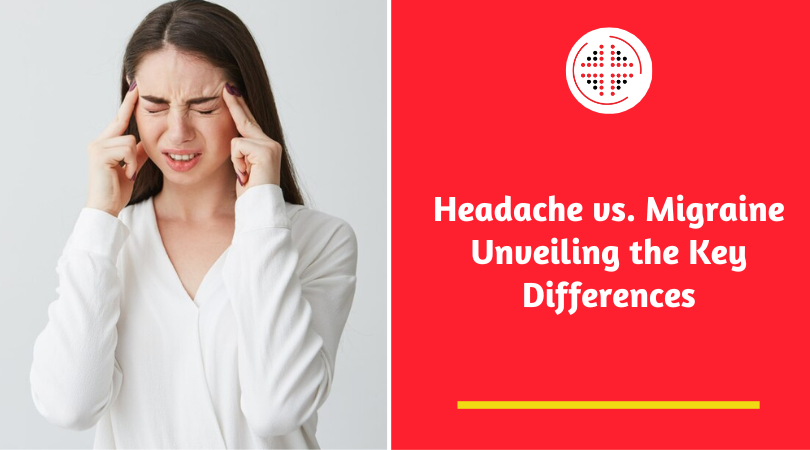


Headaches and migraines are often misunderstood and used interchangeably. Nonetheless, they are two different conditions with similar symptoms, such as pain in and around the head. When you have pain or pressure in your head, it can be challenging to disclose whether you have a migraine attack or headache. Understanding the difference between migraines and headaches is essential to get prompt relief while preventing recurrent episodes.
Let us discuss more insights on headaches and migraines and how they differ.
Headaches occur on both sides of your head, causing pressure and aching pains. The intensity of the pain can range from mild to severe throbbing.
When you have a headache, you can feel the pain in some specific areas in and around your head, including:
Migraine attacks are often severe or intense, causing other symptoms alongside headaches. While migraines usually affect one side of the head, it is possible to have migraines on both sides.
Symptoms of migraine without aura include:
Compared to headaches, migraine pain ranges from moderate to severe. In a severe migraine attack, you may experience intense throbbing pain that affects your ability to perform everyday tasks, requiring treatment at an ER. Moreover, a headache can last anywhere from 5 minutes to 4 hours, while a migraine attack can last for days or more.
There are more than 150 types of headaches, classified into two categories:
A migraine is a primary headache that happens independently, not from any other medical issue.
Migraine episodes and headaches have similar risk factors and causes that make it possible for a simple headache to turn into a migraine.
Most general and tension headaches are closely migraine episodes, with varying intensity levels. It is important to note that not all migraines are severe, and they can begin quite mildly. However, these migraines can gradually escalate and become more severe over time.
Stress is a common cause of migraines and tension headaches. If an individual with a tension headache faces intense stress or experiences a traumatic event, it could trigger the emergence of migraine features, such as visual auras.
While headaches and migraines cannot be completely cured, the following treatment options can help manage the associated symptoms and prevent recurrent episodes:
OTC medications won’t be enough to manage the symptoms of moderate to severe migraines that occur regularly. In such circumstances, prescription medicines may help diminish the severity of migraines while preventing them from happening again.
Prescription Medicines include:
Follow these lifestyle changes may help prevent some types of headaches and migraines:
Visit your urgent care provider if:
Schedule an ER visit if you:
At MI Express Urgent Care, we understand the debilitating effects of headaches and migraines on your well-being. That's why we offer specialized care and tailored treatment plans to assist you in managing your symptoms and improving your quality of life. Contact us today to live a headache-free life.